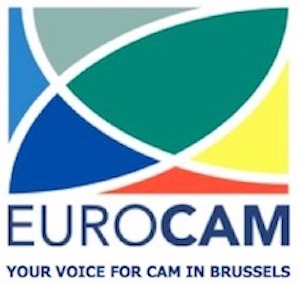CAM Regulation Regulation of CAM practice
There is a huge diversity in its regulation across the EU to determine who can practise, what qualifications are required and how services are offered and financed. CAM practice is in general either unregulated or regulated within the framework of the public health system. Some EU Member States have government-administered regulations or laws about the practice of CAM in general, some have sections on CAM included in their health laws, some regulate specific CAM therapies, while many national health systems do not recognise or regulate CAM at all.
This patchy provision means that citizens experience practical and attitudinal barriers that limit their access to and use of CAM. To redress these inequalities, it is evident that a pan-European process to instigate an appropriate regulation of providers of CAM throughout the EU should be initiated as soon as possible. This process should take into account the full extent of the scope of CAM modalities across the healthcare spectrum from general health maintenance and education to CAM treatments of specific illness. This process should run in parallel with practical measures taken to integrate CAM modalities into the healthcare systems of each and every Member State, a requirement recommended by the World Health Organization (WHO).
More specific information on regulation of CAM practice can be found on this page.
Regulation of CAM medicinal products
All EU Member States are obliged to regulate herbal and homeopathic medicinal products. Registrations and market authorisations are mainly given at the national level, but a central procedure for herbal medicinal products can be used in some cases. Herbal and homeopathic medicinal products are subject to the same application procedures as other medicinal products regarding manufacturing procedures, technical quality of the product, and all other requirements, with the possible exception of documentation of efficacy.
However, the availability of CAM products in the EU, including homeopathic, anthroposophic, herbal and Asian medicinal products, is increasingly being threatened by unharmonised, onerous requirements and idiosyncratic national regulations that are leading to prohibitive costs for manufacturers. In contrast to prescription drugs, CAM medicinal and food status products are generic, non-patentable substances. The decreasing availability of such CAM products inhibits an increasing demand by EU citizens for low risk, health enhancing CAM medicines, hampering the ability of doctors and practitioners to deliver CAM treatments effectively. It also drives people to purchase unregulated products over the internet which is inherently dangerous. It undermines the potential benefit of these products in helping to tackle health issues prioritised by the Commission e.g. combating anti-microbial resistance, managing chronic conditions and sustaining healthy ageing.
Specific information on CAM medicinal products
More specific information on CAM medicinal products can be found on the following pages:
- Herbal medicinal products
- Homeopathic medicinal products
- Anthroposophic medicinal products.
